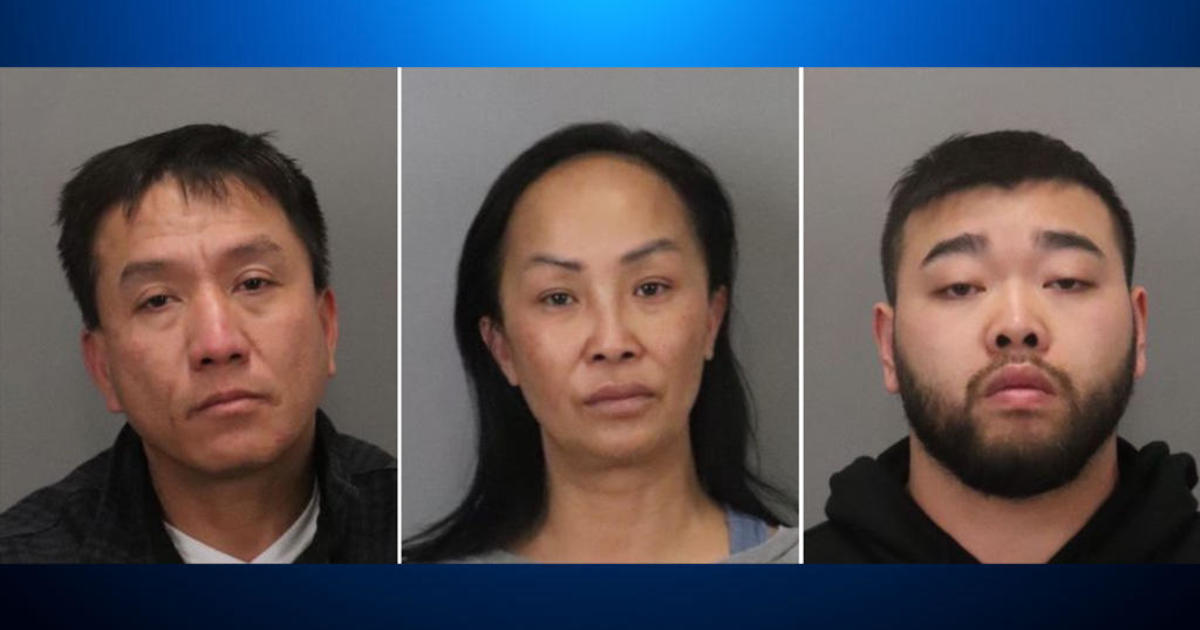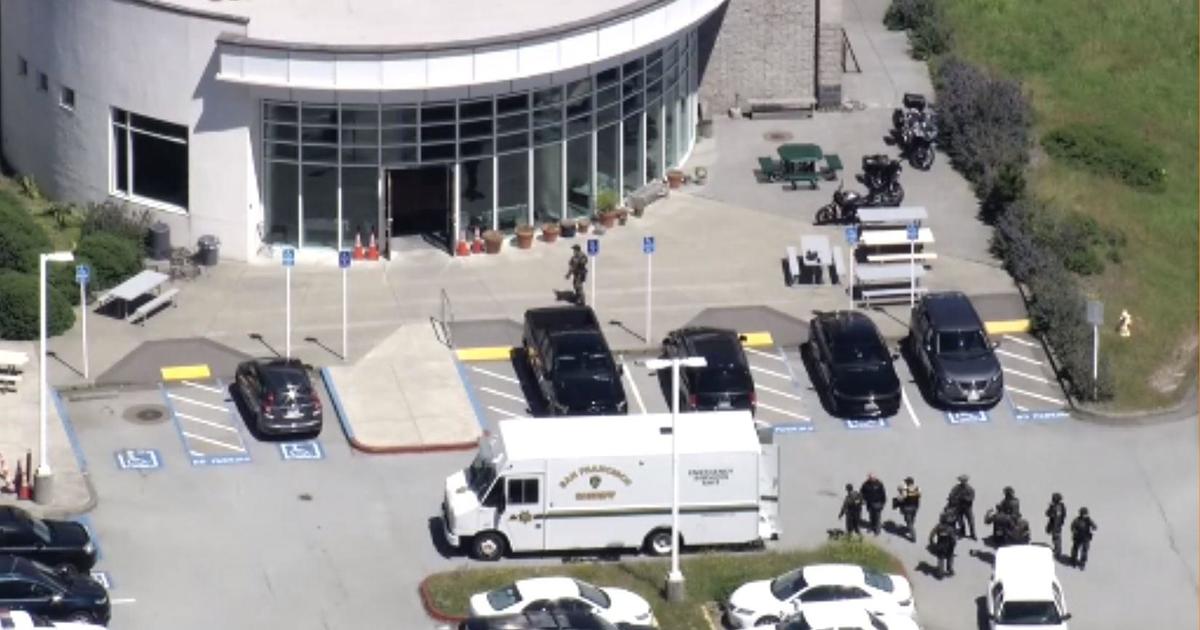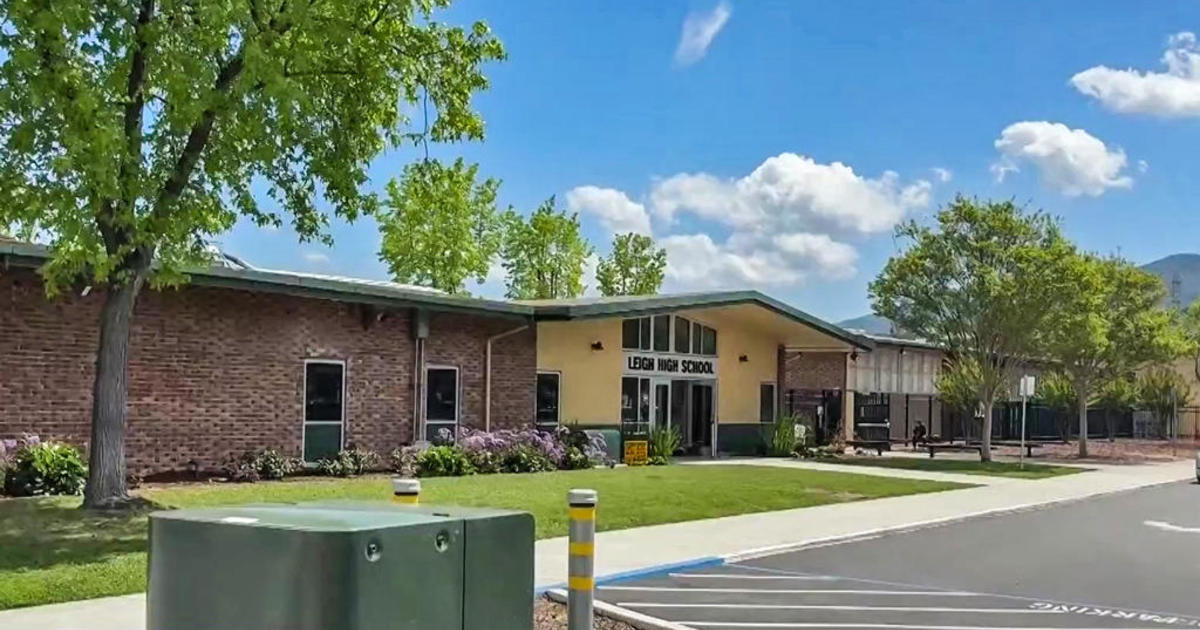Garrido Enters Surprise Not Guilty Plea In Dugard Kidnapping
PLACERVILLE, El Dorado County (CBS SF) -- Jaycee Lee Dugard, abducted as a girl in 1991 and held captive for 18 years, failed to get her first measure of justice as surprise legal wrangling Thursday delayed - or perhaps derailed - an expected guilty plea by the Antioch man accused of kidnapping her and fathering her two children by rape.
Convicted sex offender Phillip Garrido had been expected to plead guilty as part of a deal with prosecutors, but legal manuevers involving the grand jury indictment against him and his wife, Nancy Garrido, prevented that deal from moving forward.
Instead, Phillip Garrido entered a surprise not guilty plea during Thursday's court hearing and an Aug. 1 trial date was set. Deputy Public Defender Susan Gellman, who represents Phillip Garrido, contended the grand jury was improperly selected and did not act appropriately during its proceedings.
KCBS' Bob Melrose Reports:
"There are issues about the process itself before the grand jury, and the court will now consider whether the grand jury acted appropriately," said El Dorado Superior Court Judge Doug Phimister, who noted that a motion questioning the grand jury process would be heard on May 5.
Gellman did not elaborate on her claim in the courtroom but said outside that she had questions about the racial and geographic makeup of the grand jury that initially indicted the Garridos last September.
El Dorado County District Attorney Vern Pierson described the motion as common and said he expected that it would be denied.
"My responsibility is to see that these two are held accountable for the enormity of their actions," Pierson said. "We are determined to do that."
Phillip Garrido's not guilty plea Thursday came to an amended indictment that added allegations of kidnapping of a person under 14, kidnapping for sexual purposes and other claims. Nancy Garrido also pleaded not guilty to the amended charges.
Both defendants were in court for the 10-minute hearing, wearing orange jail uniforms. They didn't speak, and neither showed much emotion during the hearing.
Nancy Garrido's attorney, Stephen Tapson, had previously said Phillip Garrido was planning to plead guilty to the majority of the charges against him and be sent to prison for the rest of his life -- in exchange for a lesser sentence on his wife.
Gellman blasted Tapson for telling reporters that her client planned to plead guilty.
"He shouldn't have been speaking for Phillip. He should speak for his client," Gellman said.
The case attracted international attention after Dugard surfaced in August 2009 and authorities said she and her children had lived in a hidden compound of tents and sheds in the Garridos backyard in Antioch, never attending school or receiving medical attention.
The Garridos were both charged initally with 18 counts of kidnapping, rape, false imprisonment, child pornography and committing lewd acts on a child.
If convicted at trial on all counts, the maximum sentence for Nancy Garrido would be 181 years in prison, while Phillip Garrido could get 431 years, according to Deputy District Attorney James Clinchard.
Up until Thursday, Phillip Garrido had yet to enter a plea after his criminal proceedings were halted for more than four months while his mental competency to stand trial was under evaluation.
Both defendants gave full confessions to authorities and expressed interest in plea bargains that would spare Dugard and her two daughters — now 13 and 16 — from having to testify, Tapson said.
He said he had advised Nancy Garrido against pleading guilty unless prosecutors offered a deal that holds the possibility — however remote — that she would one day be freed from prison.
"She doesn't want to go to trial," he said. "This is her lawyer saying let's set it for trial and see what happens."
Tapson said he planned to seek dismissal of the rape and lewd conduct charges against his client, since Nancy Garrido maintained she did not directly participate in any sex acts with Dugard.
Dugard gave birth to her daughters when she was 14 and 17, and Nancy Garrido delivered the children, according to court documents. The girls knew Phillip Garrido was their father but grew up thinking Dugard was their older sister.
The mother and daughters rarely interacted with the outside world. Phillip Garrido ran a printing business, and Dugard assisted him in producing business cards, brochures and flyers, occasionally interacting with clients through email.
A few neighbors and customers would later report having seen the girls but not thinking much of it, even though they knew Garrido was a sex offender.
Authorities said an 11-year-old Dugard was grabbed by Nancy Garrido off her family's South Lake Tahoe street and forced into a car driven by Phillip Garrido on June 10, 1991, as her stepfather watched her walk to the school bus stop. Phillip Garrido was on parole for a rape conviction at the time of the abduction.
The FBI, police and volunteers searched in vain for the pretty blonde girl who was last seen wearing a pink wind breaker and pink stretch pants. But they never came close to finding her, even though Dugard's stepfather gave an accurate description of the couple's car and of Nancy Garrido, and despite the fact that Phillip Garrido was being monitored by federal and state parole agents because of his rape conviction.
Dugard's reappearance 18 years, four months and 16 days later came about almost as a fluke.
In the days before his arrest, Phillip Garrido had become more determined to tell people about the religious group he founded called God's Desire and a box he had built that he believed allowed him to speak with God. During that time, he delivered a handwritten screed called "Origin of Schizophrenia Revealed" to the FBI's San Francisco office.
But it was a visit to the University of California, Berkeley, that same day that caused his ragged family to unravel. He showed up at campus with his daughters with Dugard in tow, seeking a permit for a religious event.
Campus police officers became suspicious, and after running a background check realized he had been convicted of kidnapping and raping a woman in Reno in 1977.
The Berkeley officers contacted Garrido's parole officer, who was surprised to hear that he had young daughters and ordered him to come in for a meeting. Garrido complied and for a still unknown reason brought his wife, the girls and Dugard.
Dugard tried to conceal her identity, initially telling authorities she was hiding from an abusive husband in Minnesota and giving her name as Alyssa.
Wary investigators separated her from Phillip Garrido, who had described Dugard and the two girls as his nieces, and under further questioning he admitted kidnapping "Alyssa" and Dugard disclosed her identity, authorities said.
She was reunited with her mother the next day and has remained in Northern California with her and her daughters. She requested privacy and has not attended any of the court hearings. She is writing her memoirs, which are scheduled to be published in September.
Most news outlets as a matter of journalistic policy avoid identifying victims of sexual abuse by name in news reports.
However, Dugard's disappearance had been known and reported for nearly two decades, making impossible any effort to shield her identity when she resurfaced.
Dugard's case revealed problems with California's system for monitoring convicted sex offenders after it was determined parole agents had missed numerous clues and chances to find her.
She received a $20 million settlement under which the state acknowledged repeated mistakes were made by parole agents responsible for monitoring Phillip Garrido. California has since increased monitoring of sex offenders.
(Copyright 2011 by CBS San Francisco. All Rights Reserved. This material may not be published, broadcast, rewritten, or redistributed. Wire services may have contributed to this report.)



